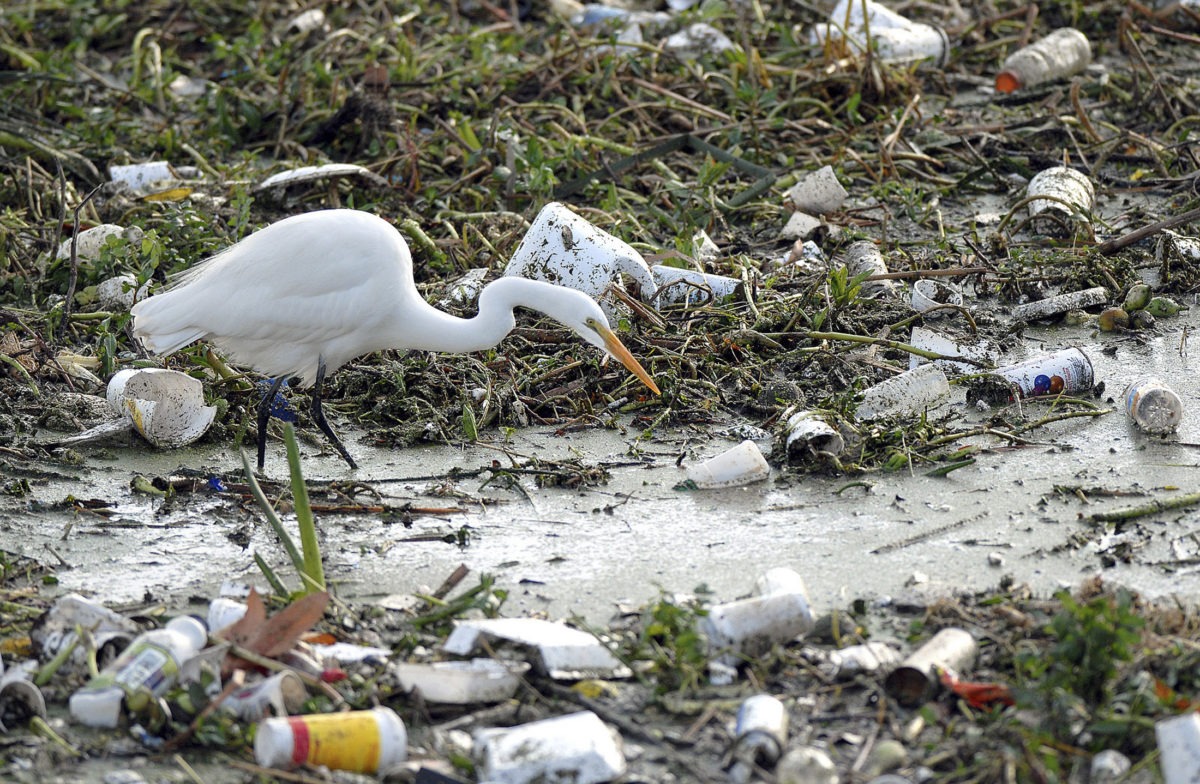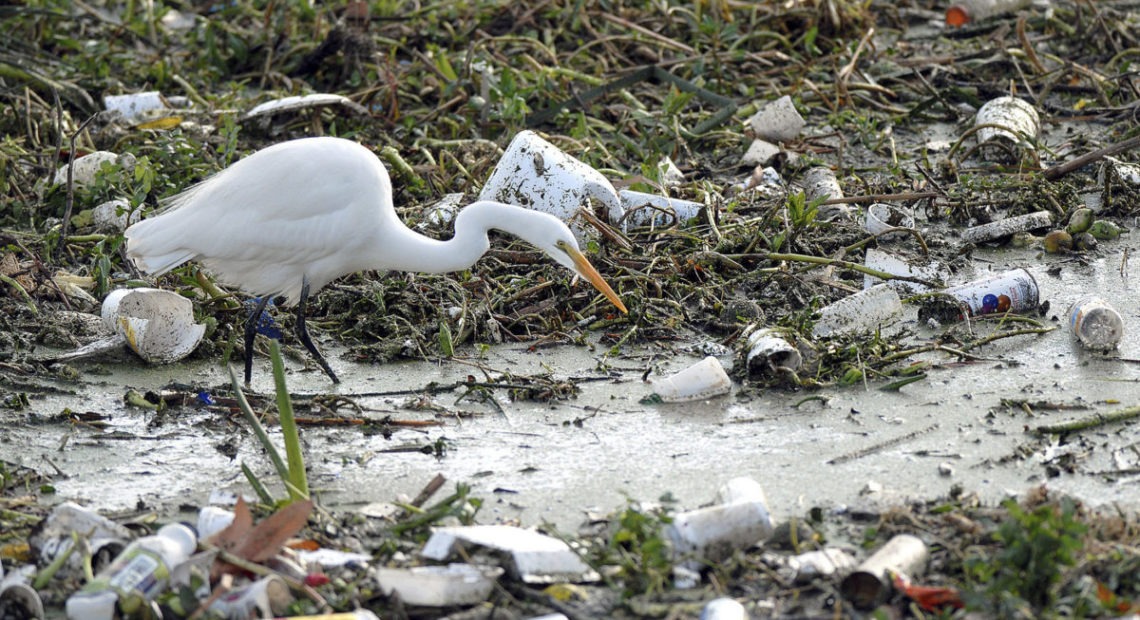
Canada Wants To Ban Single-Use Plastics. Would It Make A Difference?
READ ON
BY VICKY STEIN
From Vancouver to Halifax, plastic plates, plastic bags and plastic straws may be on their way out. But a possible country-wide prohibition on certain single-use plastic products may not address the spread of the most insidious plastic litter, some scientists say.
According to Canadian officials, the potential bans — which could go into effect as early as 2021 — would not only curb litter but also cut nearly 2 million tons of carbon pollution. They claim the policy would also stimulate the economy by creating 42,000 jobs.
“I am, like a lot of scientists, excited, with a lot of caveats,” said Max Liboiron, an environmental scientist at Memorial University in Newfoundland.
Plastics can persist for hundreds, if not thousands of years in the environment. Plastic litter can entangle and kill wildlife, or break down into tiny particles — microplastics — that collect and leach out heavy metals or harmful chemicals. While recycling can repurpose plastic materials into other products, <href=”#how-much-of-global-plastic-is-recycled”>fewer than 10 percent of plastics are actually recycled. The bulk of recyclable plastic is currently in limbo, as countries in Asia have shut their doors to shipments of other nations’ trash.
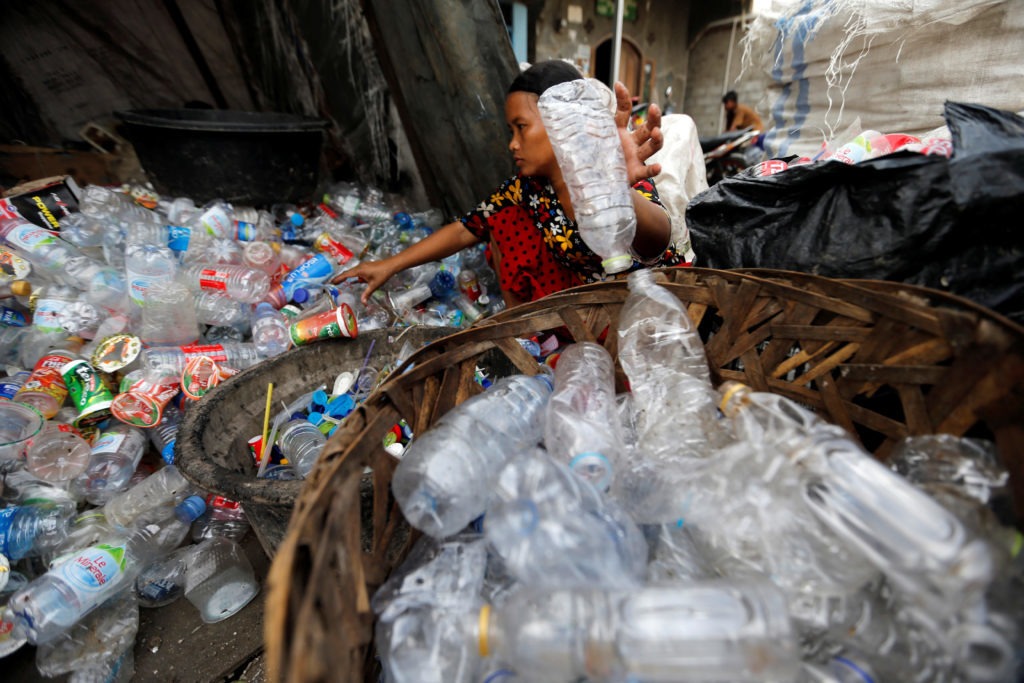
A woman sorts plastic bottles for recycling at Cilincing district in Jakarta, Indonesia. Since China stopped accepting most recyclables from other countries, Western nations have begun to ship more of their waste to Southeast Asia. CREDIT: BEAWIHARTA/REUTERS
Canada’s Prime Minister, Justin Trudeau, is pursuing a ban of plastic products under the Canadian Environmental Protection Act, which was used to restrict microbeads in 2018.
Liboiron’s hesitance comes from her five years of surveying the plastic waste that washes up on the shores of Newfoundland. The major plastic problems she sees in her research aren’t addressed so far in the Canadian government’s plan.
“They say [the bans are] going to be science-based, which is great,” Liboiron said. “But my question is, ‘what science?’”
What A Ban On Plastic Bags And Straws Misses
Tuesday’s announcement references single-use items — plastic bags, straws, cutlery, plates, stir sticks, takeout packaging, cups, and cigarette butts — the government argues can be replaced without disrupting day-to-day life. But Liboiron said those are not the products that plague Newfoundland’s coastline.
Plastic bags, a popular target for smaller-scale local plastic bans around Canada and the United States, make up less than 1 percent of the plastics Liboiron and her colleagues collect on shore. Likewise, plastic plates, coffee stirrers and cutlery don’t turn up in her samples. On Newfoundland’s beaches, the main culprits of plastic pollution are fishing gear and microplastics, Liboiron said.
When deciding what to ban, the government said it will account for whether the products are necessary and whether affordable, effective alternatives exist.
Plastics are vital for sterile medical and research supplies, as well as emergency food and water supplies. Those categories would likely not be affected by the proposed embargo.
Meanwhile, restrictions on plastic straws have become popular and a symbol for activists looking to reduce plastic waste, but such bans place a burden on people with disabilities. Some argue plastic straw bans represent a step backwards in accessibility.
The government said that accessibility would be taken into account as the bans are formalized.
It’s not clear, at the moment, if or where evidence-based decision-making comes into this process, however. According to Liboiron, very little research has successfully tracked the movement of consumer products in the ocean, since their disintegration into microplastics makes them hard to identify.
Do Plastic Bans Work?
Some data exists on the effectiveness of city-wide plastic bag bans — San Jose, California, for instance, cut plastic litter in storm drains by 89 percent— but this kind of large-scale ban has never been tried before. The closest predecessor to Canada’s plans will be the upcoming single-use product bans in the European Union. The Canadian government is likely to follow the same research and recommendations as the EU, the official said.
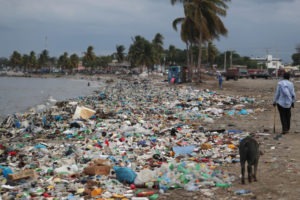
Plastic bags wash up as part of the litter on beaches around the world. CREDIT: REUTERS/RICARDO ROJAS
But environmental engineer Morton Barlaz of North Carolina State University posits that bans might not be the best solution for our planet’s growing plastics problem.
“Nothing works like an incentive better than money. Instead of banning bags, we could start charging for them,” Barlaz said. Under that strategy, the hope would be to avoid losing access to useful products like plastic bags and straws outright, and instead voluntarily cut their use.
“Anything we’re talking about — a straw, a plastic bag, a piece of cutlery — it has a function consumers want. If we ban it, we need to think about the alternative and what that alternative does for people and the environment,” Barlaz said.
If the alternative to a piece of plastic cutlery is a piece of biodegradable plastic that costs more fossil fuels to produce and is equally difficult to dispose of, not to mention costs more for the business selling it, it doesn’t solve any of the problems we associate with petroleum-based plastics.
“Anytime you make a policy, somebody can come up with a legitimate, reasonable exception to that policy in about 30 seconds,” Barlaz said. “I have to wonder if incentives would get us most of the way there without these exceptions.”
Liboiron has another alternative to plastic bans — reducing Canada’s oil subsidies, which have a value of between $7.7 billion and $15 billion.
Because oil is the source of all petroleum-based plastics (as well as a major contributor to carbon pollution), Liboiron said, an increase in oil prices would decrease the cost-effectiveness of single-use plastics across the board.
Copyright 2019 PBS NewsHour. To see more, visit pbs.org/newshour
Related Stories:
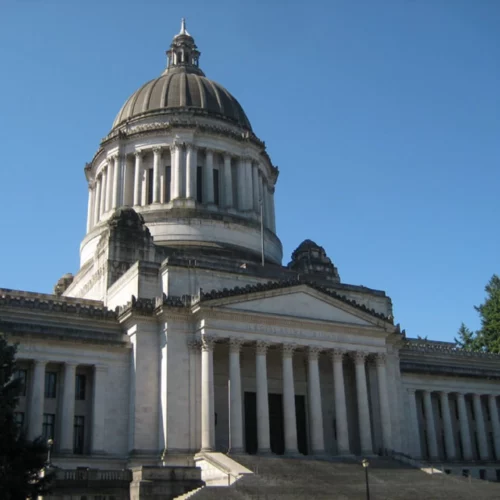
WA lawmakers pass housing, firearm bills ahead of cutoff, leave rent control, recycling bills behind
Washington lawmakers are getting back into the swing of working on legislation in committees following a key cutoff deadline. Wednesday marked the final day for legislators to pass bills from the chamber they originated in, meaning most bills that didn’t receive a vote on the floor will no longer be considered this session.
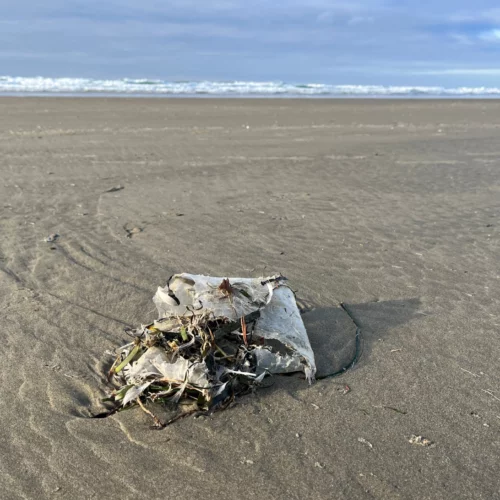
Foam dock floats, laundry filters, hotel shampoo amongst newest bids to reduce plastic pollution
Everywhere they look, Pacific Northwest scientists find teeny-tiny plastic pollution. Broken down particles are in our water, falling out of the air, in salmon, shellfish and in our own bodies. Scientists, environmental advocates and Democratic lawmakers in Olympia and Salem have seen enough to make them seek more regulations.
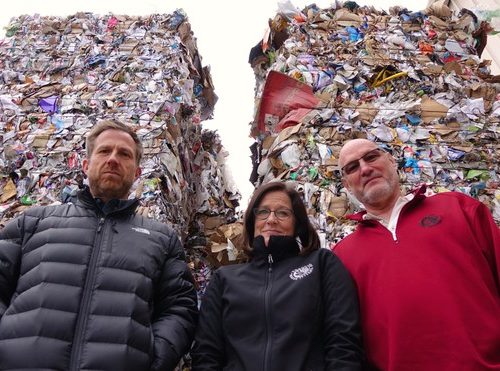
WATCH: Is Recycling Worth It Anymore? People On The Front Lines Say Maybe Not
Recycling works, but it’s not magic. As America continues to lead the world in per capita waste production, it’s becoming more and more clear that everybody – manufacturers and consumers — “over-believes” in recycling.

